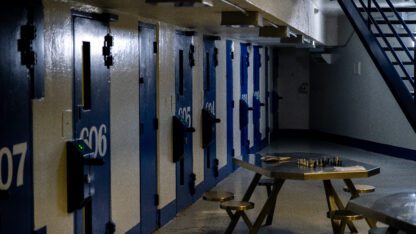People who rely on motels for long-term housing in Georgia will have greater protection against forced removal under a state appeals court ruling, an attorney said.
The Second Division of the Court of Appeals of Georgia ruled that an extended stay motel outside Atlanta could not kick two residents out without filing formal eviction cases in court.
The motel — Efficiency Lodge on Flat Shoals Road in Decatur — had argued the residents were guests who could be removed summarily.
The second division disagreed, noting in a decision on Monday that one of the residents — Armetrius Neason — had lived at the lodge for more than five years. Both of the residents had, additionally, put personal belongings in their rooms and said they didn’t receive housekeeping or linen service, according to the court.
“None of these facts are consistent with the idea that Efficiency Lodge treated the plaintiffs as the transient guests of a hotel as such is understood by a reasonably common person,” the court said.
Instead, the court concluded the two residents were tenants — a designation held by traditional leaseholders that gives them the right to contest an eviction attempt before a judge.
“This sets a new precedent that applies statewide,” said Lindsey Siegel, an attorney with the Atlanta Legal Aid Society that brought the case.
Roughly 26,000 extended-stay units in metro Atlanta alone are used as semi-permanent or permanent housing, experts estimated in a brief filed in the case. Siegel said the ruling, therefore, will have a “huge impact.”
Efficiency Lodge will appeal the ruling to the Georgia Supreme Court, attorney Roy Barnes told the Atlanta Journal-Constitution in a story on Wednesday.
“Though we respect the ruling of the Court of Appeals, we believe the court was wrong in its analysis,” Barnes told the AJC in an email.
Housing attorneys say long-term motel and hotel dwellers face a heightened risk of homelessness across the country because many states do not clearly define when hotel and motel guests become tenants. That risk increased during the pandemic because hotel guests were excluded from a federal moratorium on evictions for people facing financial hardship, according to the attorneys.









